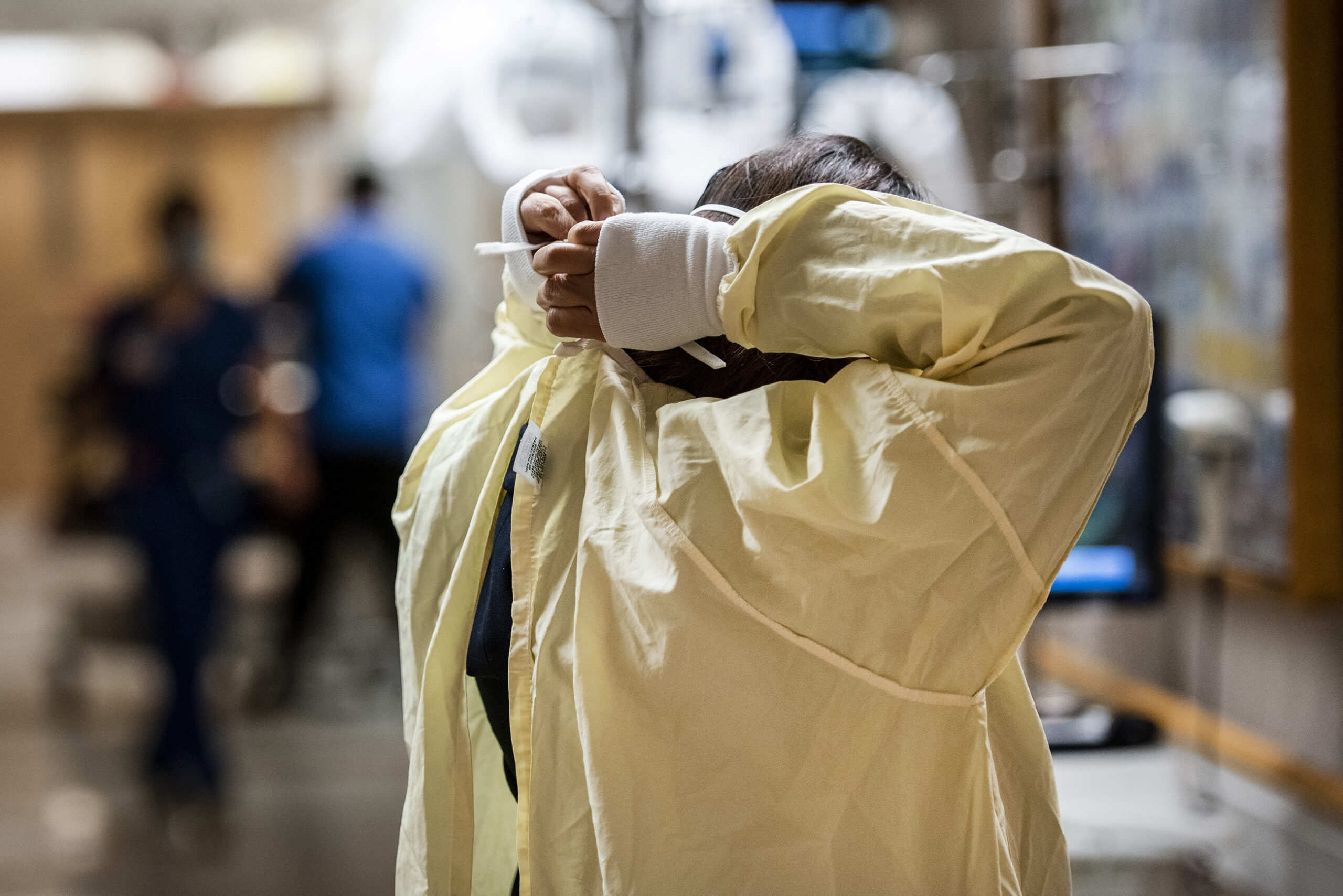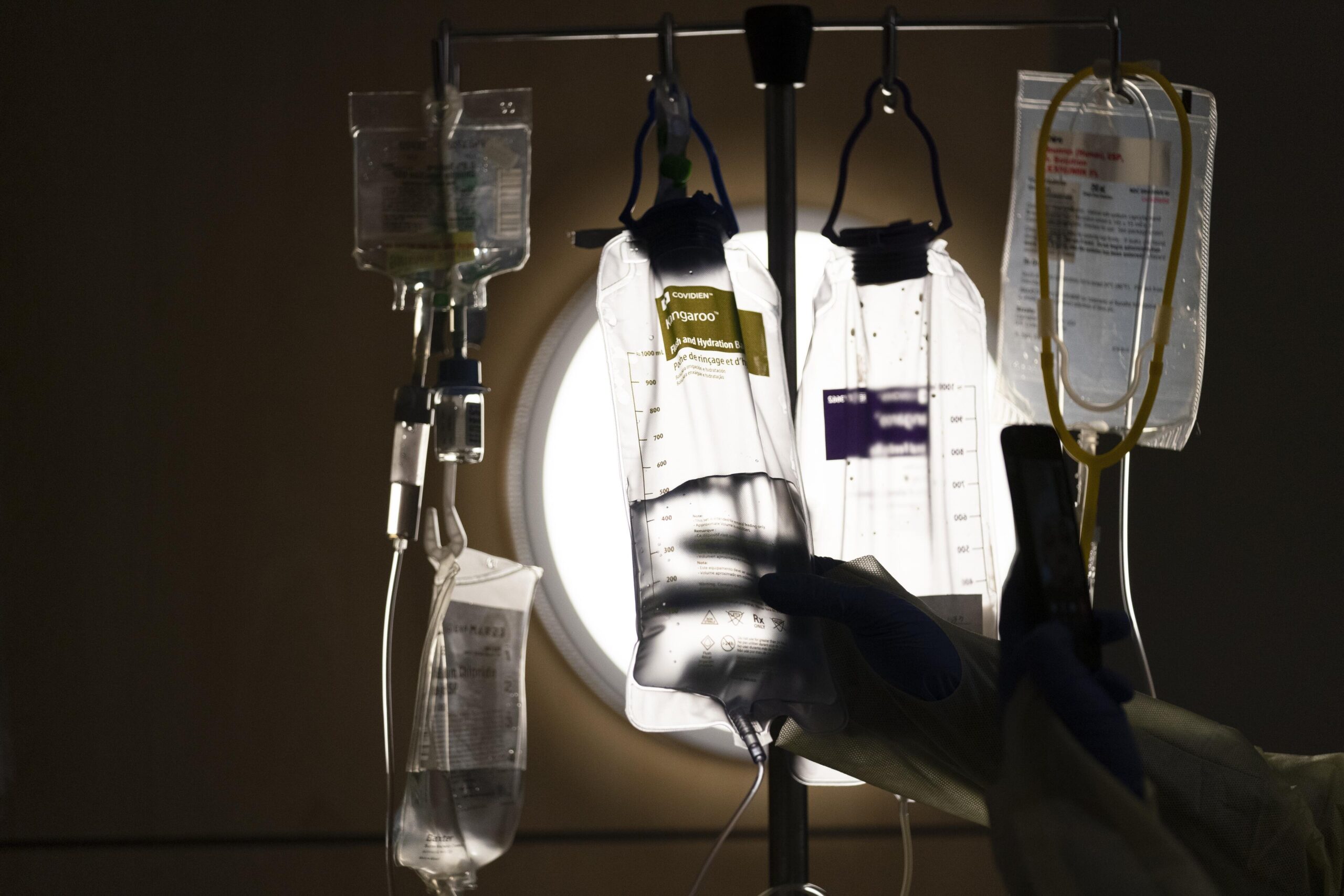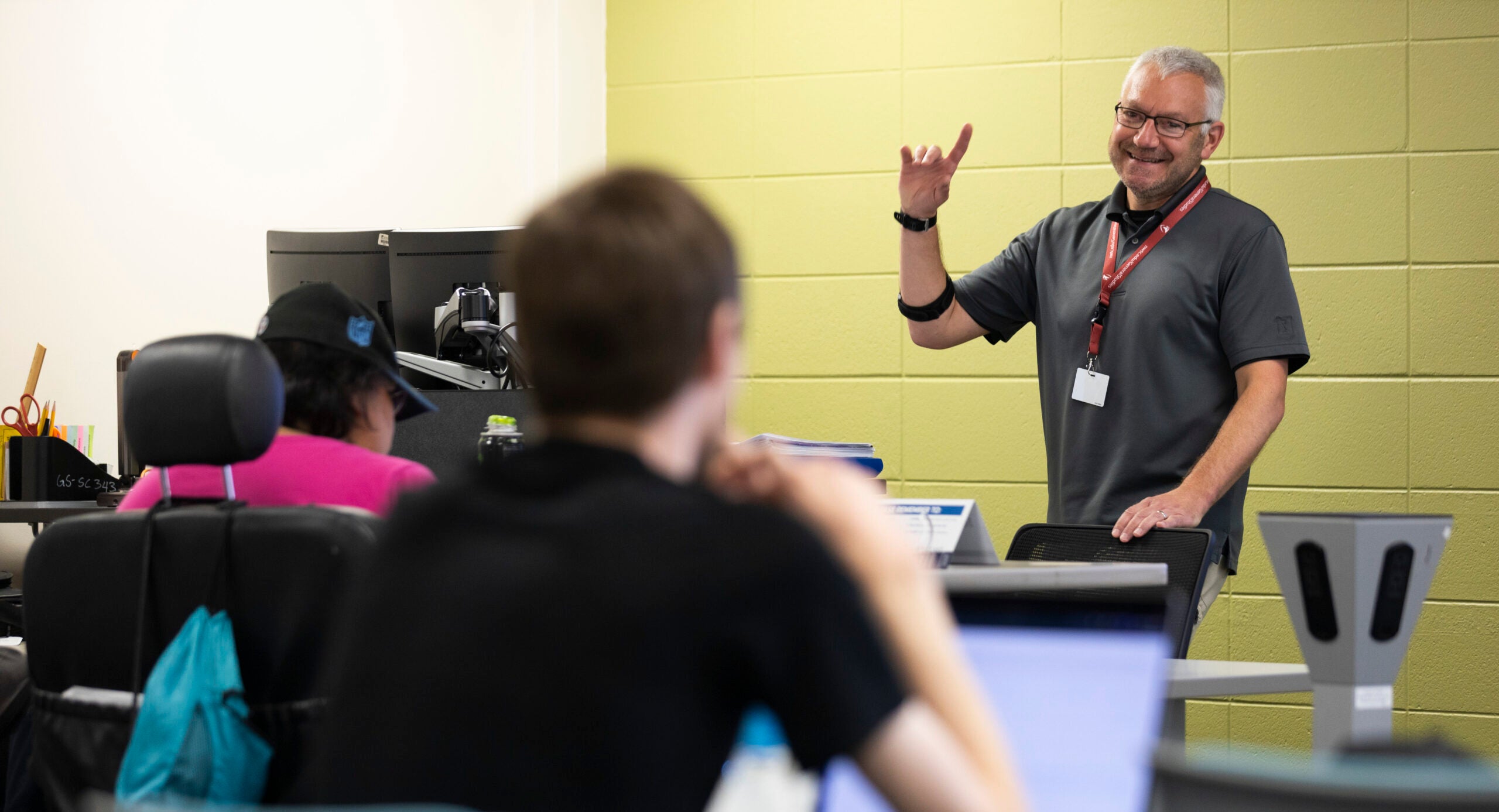More students are graduating in nursing and related health fields in Wisconsin, but according to a new study’s author, that won’t be enough to deal with ongoing health care worker shortages.
The new Wisconsin Policy Forum study found bachelor’s and advanced degree completions in health science have gone up by almost 50 percent in the past decade in southeastern Wisconsin. At the same time, completions of certificate and associate degree programs decreased by 14 percent.
Study author Joe Peterangelo said more hospitals are requiring nurses to get bachelor’s degrees.
News with a little more humanity
WPR’s “Wisconsin Today” newsletter keeps you connected to the state you love without feeling overwhelmed. No paywall. No agenda. No corporate filter.
“In the past, it used to be very common to have an associate degree,” said Peterangelo. “Now, it’s become very, very common to have a bachelor’s degree, and there, the hospitals really are trying to make that happen.”
The study’s data runs through 2019. Peterangelo said the COVID-19 pandemic has intensified trends that were already taking shape in health-related fields.
“We’d already been seeing enrollment declines at a lot of colleges and universities even before the pandemic, and then the pandemic caused that to continue or maybe accelerate a little bit,” said Peterangelo. “I think a big question mark going forward is how enrollment will trend in the future.”
Peterangelo said in order to deal with the worker shortage, colleges need to be doing more to attract students and create an environment that keeps those students there beyond the first year.
That’s especially the case for students of color, who have been graduating at much lower rates than white students. The study found Black students made up 9 percent of health science program graduates in the region in the past decade, while about 4 percent of graduates from those programs were Asian.
Janet Krejci, the dean of Marquette University’s College of Nursing, said a diverse workforce will lead to better outcomes in health care. She said diversity has been a focus for the college for years.
“We need nurses and health care providers to mirror the population we serve, and that is not there yet,” said Krejci. “We know that health care disparities are in part related to that.”
As WPR previously reported, before the coronavirus, Wisconsin needed at least 3,000 more registered nurses. Nationally, the country will need to fill nearly 176,000 registered nurse positions each year through the year 2029.
Krejci said the general interest in becoming a nurse has not waned.
“If you have to enter the health care system, you want someone who has had a premier education, who understands what it means to advocate for vulnerable humans, and someone who understands clearly social determinants of health and health care disparities and how to mitigate that on a day-to-day basis,” said Krejci.
Krejci said the pandemic has “taken a toll” on nurses currently in the profession.
“I won’t sugarcoat that, I think it’s been hard on nurses,” said Krejci. “They work long hours, lots of uncertainty.”
However, Krejci said the pandemic has also highlighted the need for an inclusive educational environment.
“We’re continuing to focus on how do we create that inclusive environment where people feel a sense of belonging, and faculty feel equipped on creating inclusive environments, transparent design, and really engaging students,” said Krejci.
The College of Nursing at University of Wisconsin-Milwaukee has been undergoing similar changes. College of Nursing Dean Kim Litwack said the school has changed its application process to value more than GPA.
“We invite students to share their life experiences with us to aid in our decision-making,” Litwack said in an email. “Admitting students who may bring incredible life experiences also requires colleges to have supports in place, should their academic foundation or language foundation be a bit weak. We want them to be successful.”
Earlier this year, the Marquette’s College of Nursing received a $31 million gift. Krejci said that funding will help support nurses in groups currently underrepresented in the profession.
Wisconsin Public Radio, © Copyright 2025, Board of Regents of the University of Wisconsin System and Wisconsin Educational Communications Board.







